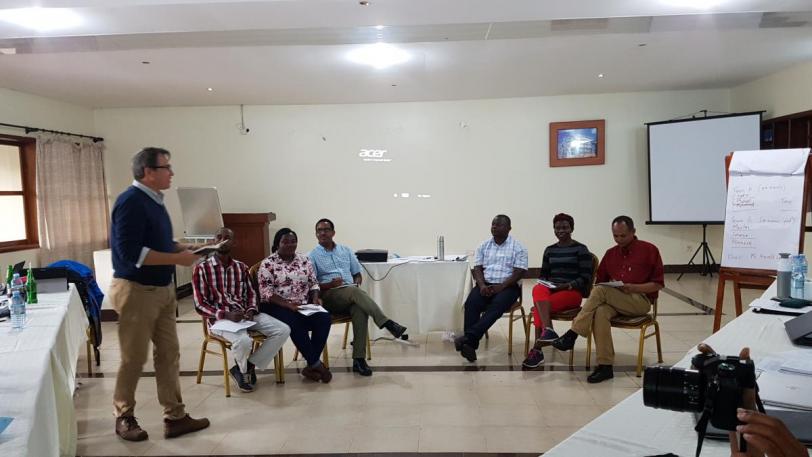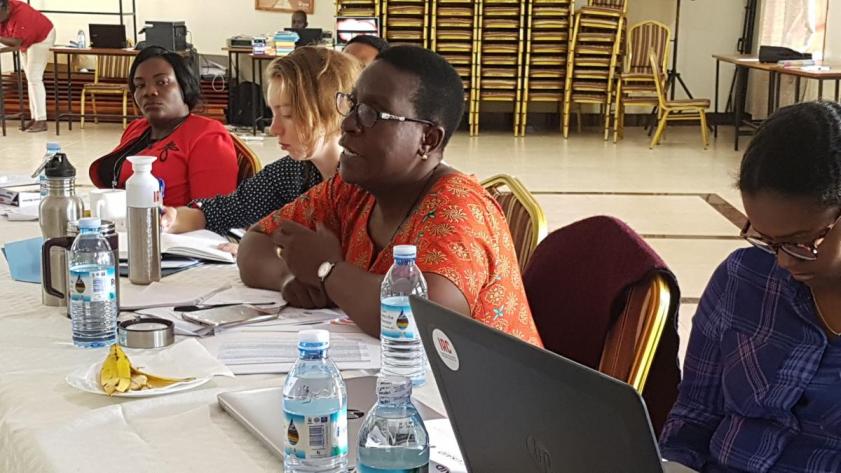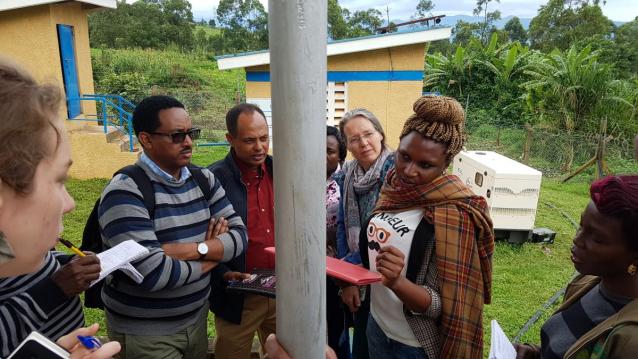Analysing partnerships and how they strengthen WASH systems.
Published on: 13/12/2018

You can’t do it alone, and government can’t do it alone. Strengthening a WASH system needs a whole partnership of actors working collectively, but what do partnerships need to work well? These partnerships bring together those that make the system controversial and complex in the first place – the agencies, organisations, or individuals with conflicting ideas about what the problem is and what needs to be done.
Undertaking this process is an ambitious endeavour – there is not a lot of existing guidance available for doing this in WASH – so we act on what we have learned in the past, what makes sense now, and adapt and learn as we go. A ‘learning alliance’ approach works within local governments to strengthen coordination and engages all key local actors in the implementation of a shared learning and action agenda; these are just one form of collaborative partnerships aimed toward action. Similarly, the USAID Sanitation for Health activity in Uganda aims to strengthen district governance through collaboration to maximise impact and Sustainable WASH Systems (SWS) partners Oxford and UNICEF in Kitui County, Kenya work to strengthen institutional coordination in a quarterly County WASH Forum.
But other sectors have studied collaborative partnerships for action, documenting the key conditions that have enabled or hindered their initiatives from taking collective action. Groundwork has been laid in the areas of collaborative planning and management by Richard D. Margerum and of collaborative governance by Chris Ansell highlighting the conditions for success through different stages of setup, maturing, and sustaining these forms of partnerships.
We learn from these sectors, but we must be cautious not to assume lessons that can be taken word-for-word and applied in our contexts. Frameworks such as the Collective Impact framework from FSG emphasise the need for a strong backbone organisation and common agenda as two of the five key conditions for success. In our diverse, complex, controversial WASH systems, how do we balance those ‘requirements’ with the reality of what happens on the ground?
For example, how can collectives form a strong backbone that represents the group while also allowing local government leadership? If local governments drive local systems as is laid out in the USAID local systems framework, what guidance is there for appropriately involving them in a backbone structure?
What does a ‘common agenda’ look like when members must comply with external pressures from their organisation or donor – when an NGO with a budget for drilling seven boreholes doesn’t have the flexibility to shift their priority to corrective or preventative maintenance?

How can we apply these lessons to the diverse, complex, controversial WASH systems we work in?
At the end of November, teams from IRC Ethiopia and IRC Uganda unpacked the key events that occurred this year in the local government learning alliances in Mile and South Ari in Ethiopia and Kabarole in Uganda. We reflected on the conditions that enabled and hindered progress, for example, as the Kabarole learning alliance emerged from a previously-existing group in the district, there is little turnover of members which allows for more cohesive work. Yet, the learning alliances in Ethiopia have started without any existing coordination platforms and in the first three meetings face a trade-off with new representatives. (New members allow for more ideas and more individuals that can learn from the alliance, but the facilitation team must almost re-start every meeting by getting everyone up to speed with the rest and reminding everyone of what happened before.) Building on existing platforms, or starting fresh with lots of turnover, is one condition that may lead to success – and that is what IRC and the USAID Sustainable WASH Systems learning partnership is learning about. Yet, it is just one paint in the palette.
We need research that starts to outline what has been done, where existing collective action approaches in WASH fit into this spectrum, and then determine what can be learned and what needs to be adjusted contextually to have a chance at success.
As a part of the USAID Sustainable WASH Systems learning partnership, the University of Colorado Boulder will be reviewing collective action approaches in water, WASH, and sustainable development to map out the different approaches, enabling conditions, hindering conditions, outcomes and forms of assessment. We will use cases to apply our learning to existing approaches. Our cases will focus in Sub-Saharan Africa with IRC learning alliances for rural water in Ethiopia and Uganda, Tetra Tech learning alliances and collective impact initiatives for sanitation in Ethiopia and Uganda, and the UNICEF WASH Forum in Kenya. IRC’s experiences from learning alliances in their past work will also inform this study.
With our review just starting, we are starting to paint a picture about what conditions can lead to successful collective action – incentives to engage, leadership roles that are taken on by members over time, the ability to adapt as the problem changes, access to comprehensive data about the system, shared understanding of problem definition and the strategy for accomplishing goals, and accountability – but there are still many gaps and grey areas that need to be filled in.

To paint this picture, to fill in the gaps, our sector needs to bring together the colourful experiences from practice and the lessons learned from all. Learning is both an art and a science and always benefits from the unique perspectives that each new contributor adds. We invite contributions of others working to facilitate a group of WASH actors to take collective actions – please reach out to us to incorporate your experiences!
At IRC we have strong opinions and we value honest and frank discussion, so you won't be surprised to hear that not all the opinions on this site represent our official policy.